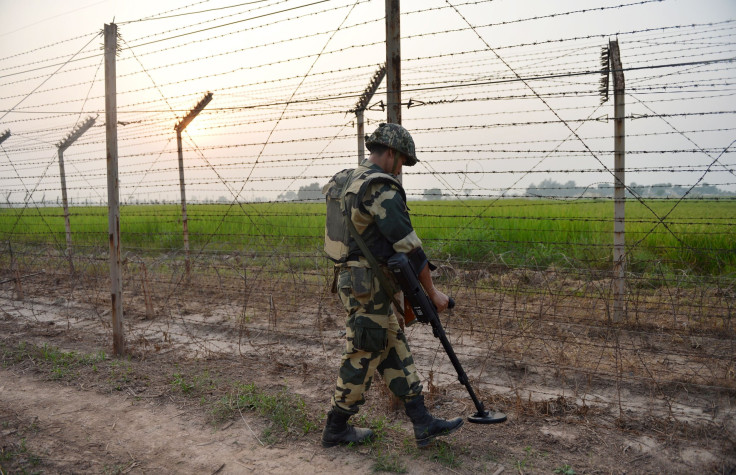India, Pakistan To Go To War In Kashmir? India Building Bunkers May Mean More Hostilities Are On The Way

The strike on Sept. 19 by suspected rebels using guns and grenades against India's Uri army base in Kashmir that killed 19 soldiers appears to have prompted India to construct underground bunkers along the highly militarized frontier with Pakistan, the Telegraph reported Tuesday, raising fears of a deepening conflict between the nuclear-armed neighbors,
The Telegraph reported that "a military checkpoint near Uri in India-controlled Kashmir revealed the country’s army has quietly but decisively bolstered its fortifications along the 'Line of Control,'" which is the de facto border, while India troops claim "cross-border gunfire in northern Kashmir now occurs 'every night.'"
Construction of the bunkers, which were described as "stone and cement walls" and are six-by-10 feet tall, would have begun about a week before India carried out last week what it called "surgical strikes" on a terrorist launching pad in Pakistani-controlled Kashmir.
Pakistan denied the strike took place, claiming that two soldiers were killed in artillery shelling. "India is doing this only to please their media and public,” Pakistan defense minister Khawaja Asif said.
In more evidence of the perceived potential for increased hostilities, Indian villagers living near the Pakistani border have been asked to evacuate, BBC News reported. The unease for civilians may be justified considering the bellicose comments from Asif, who recently emphasized the military's willingness to deploy nuclear weapons if threatened.
"We haven't kept the devices that we have just as showpieces," Asif said in an interview. "But if our safety is threatened, we will annihilate them [India]."
The harsh rhetoric isn't one-sided. "We need to cripple them, we need to bring them down on their knees," Arnab Goswami, a host of India's most-watched English news hour, said of Pakistan, according to CNN.
It's unclear how much of the talk will lead to more unrest.
In 2003, India and Pakistan agreed to a ceasefire after 14 years of gun fights across the disputed Kashmir territory. At the time, India accused Pakistan of aiding Islamic militants who carried out an insurgency that killed at least 35,000 people.
© Copyright IBTimes 2025. All rights reserved.





















